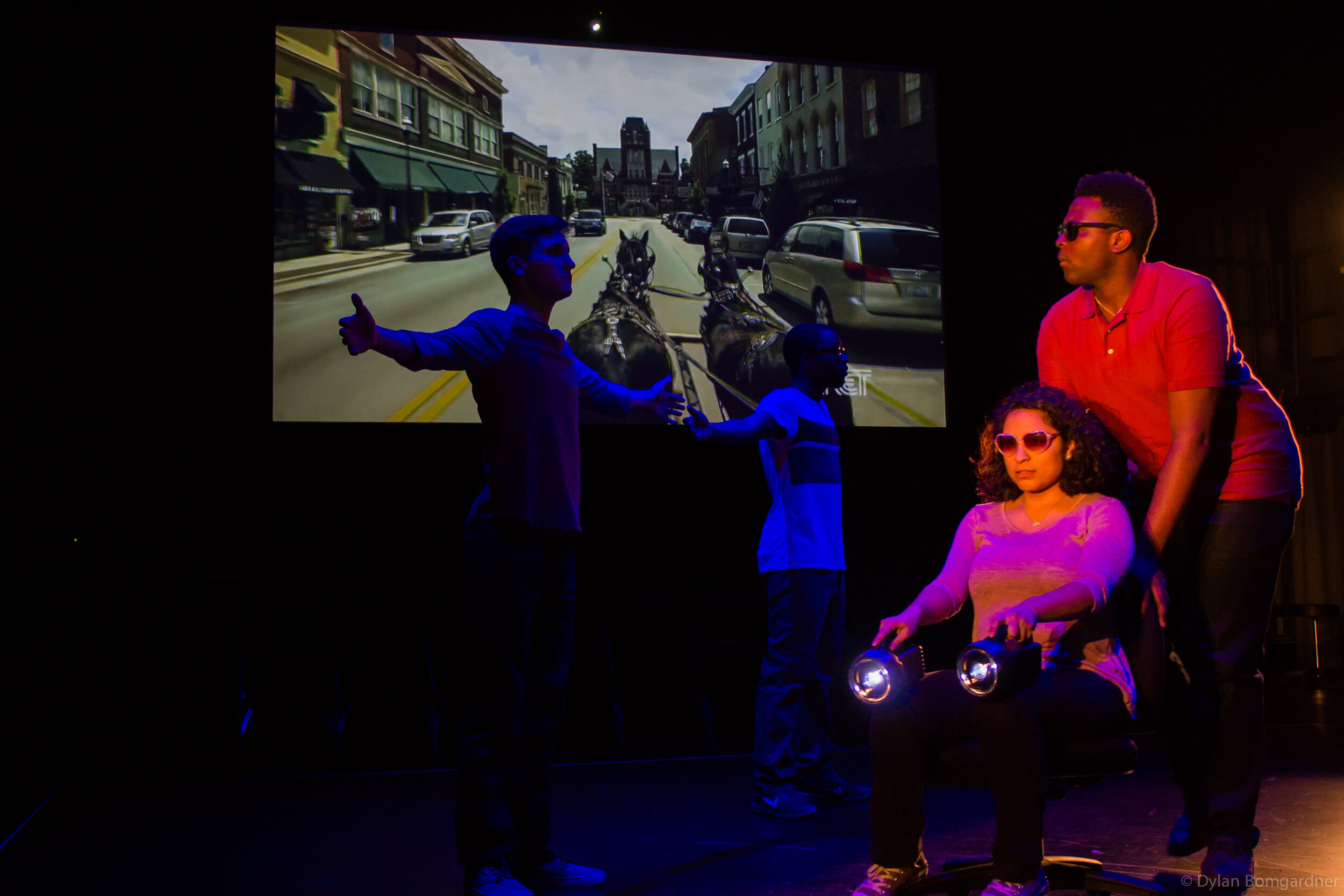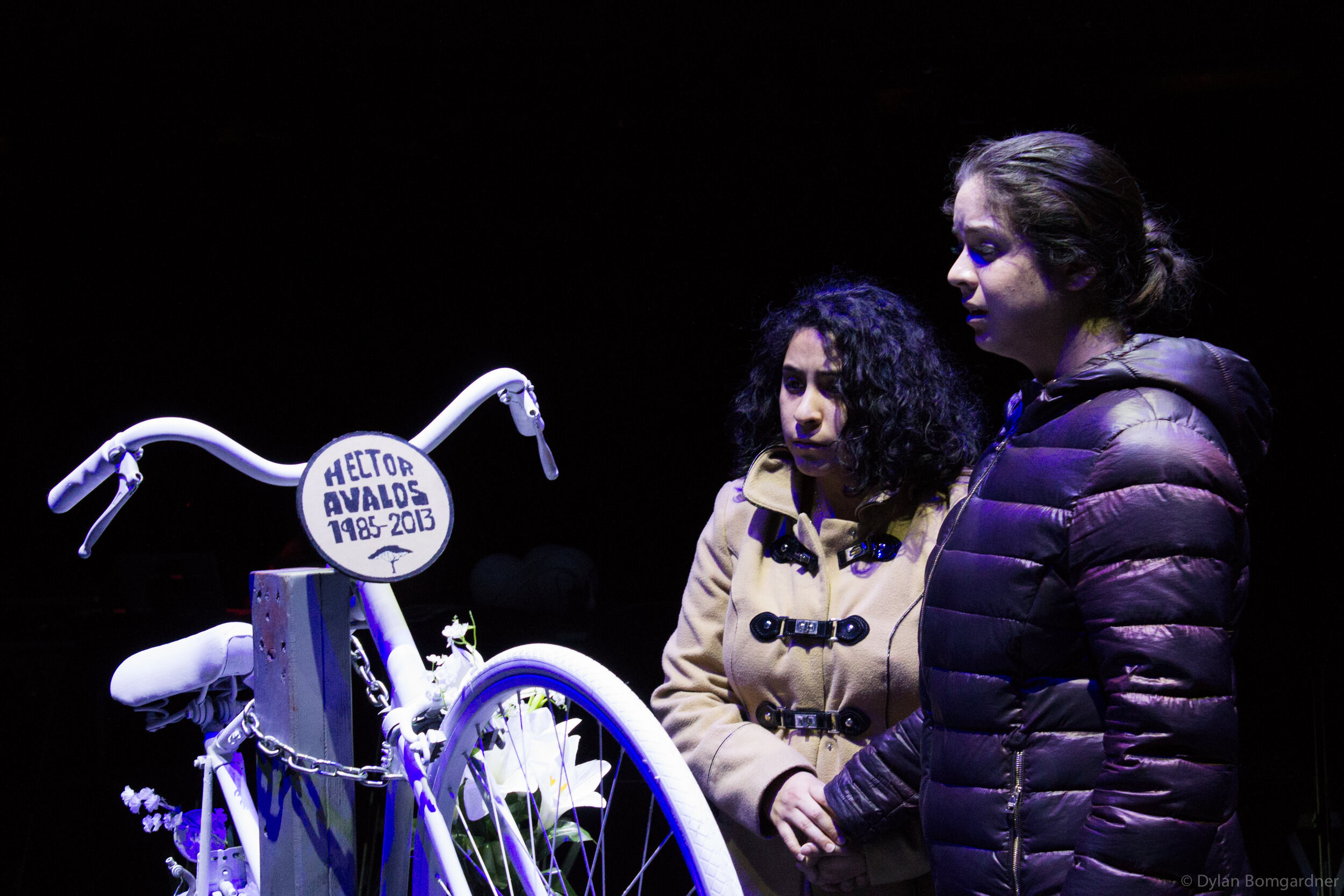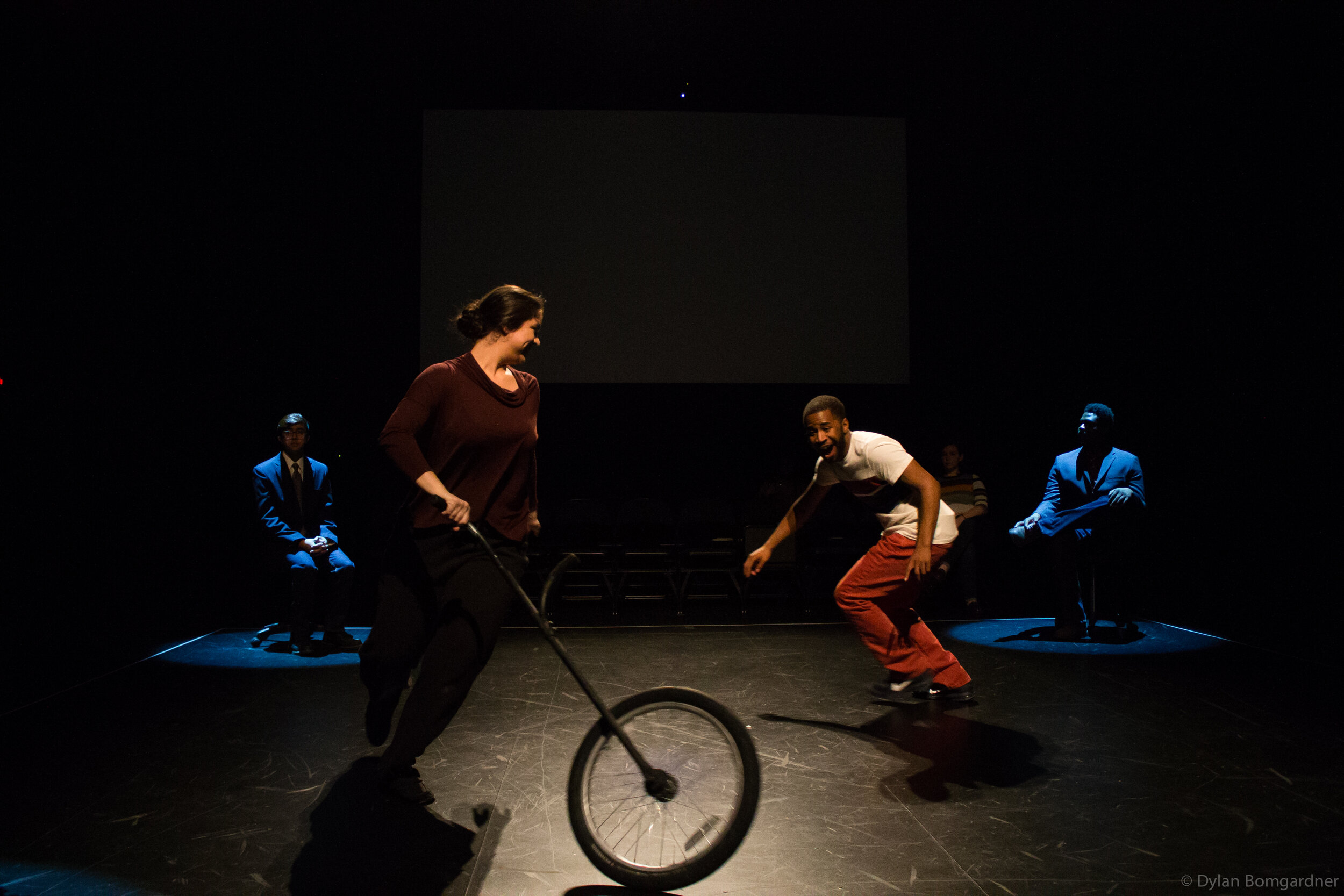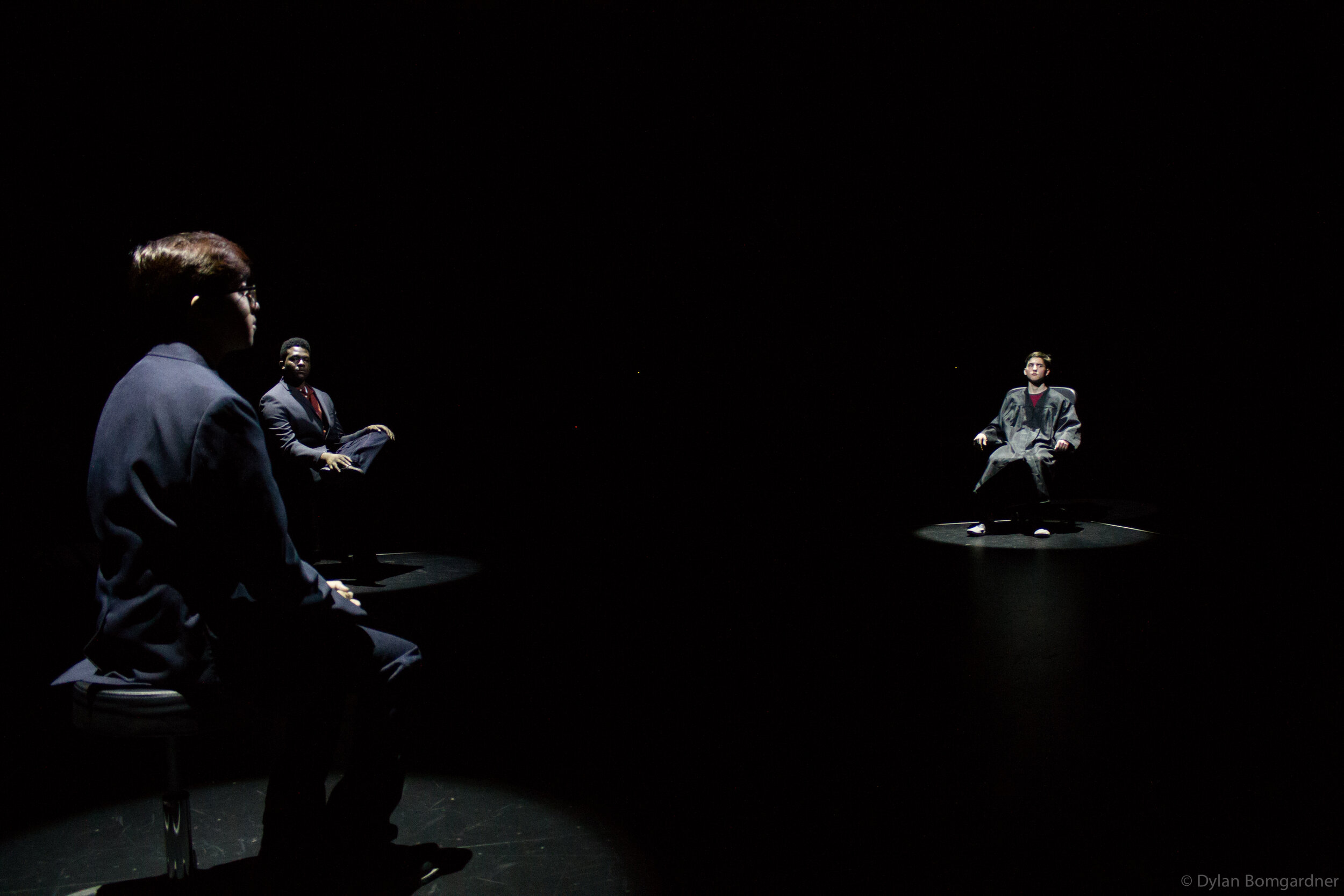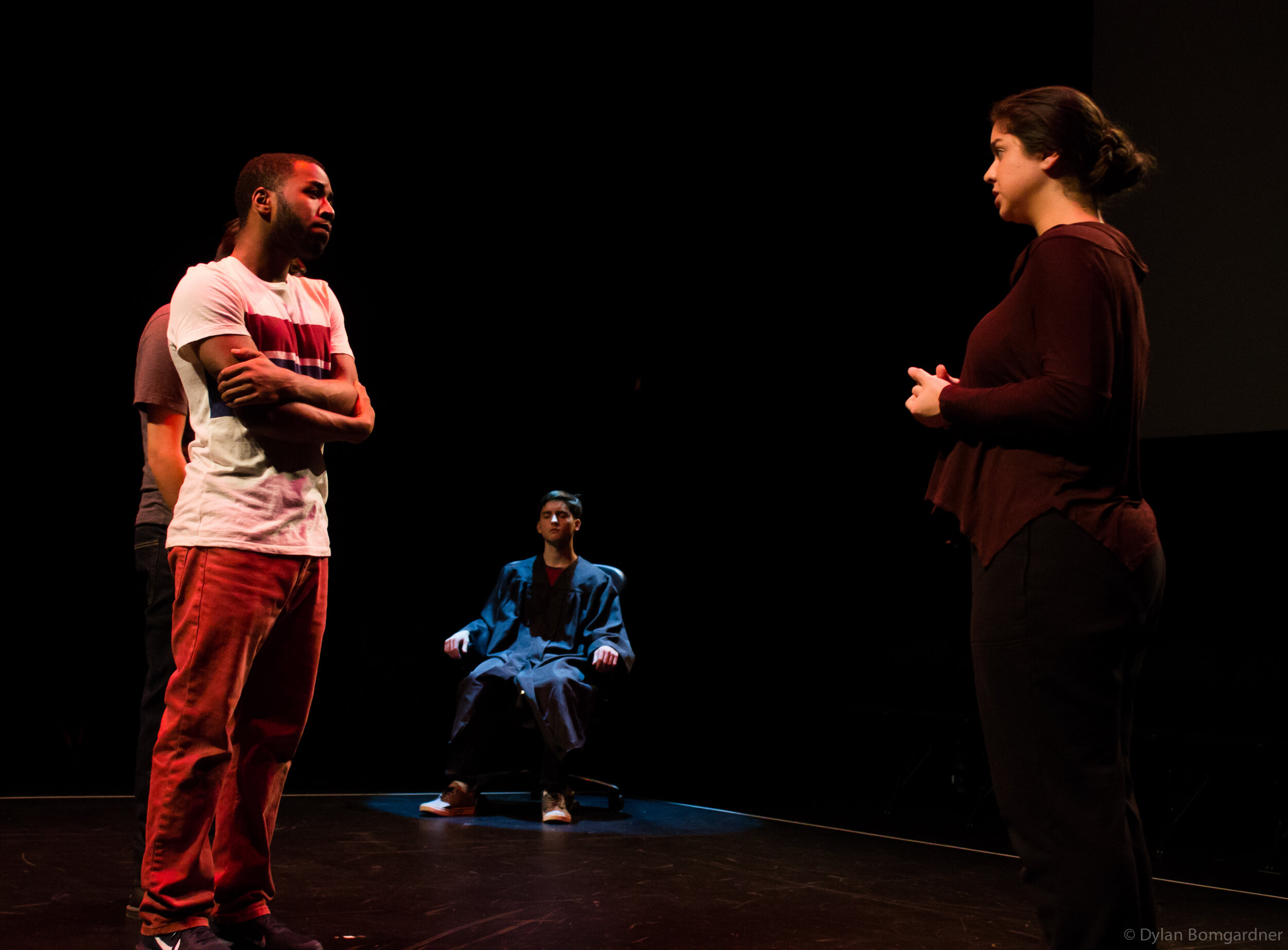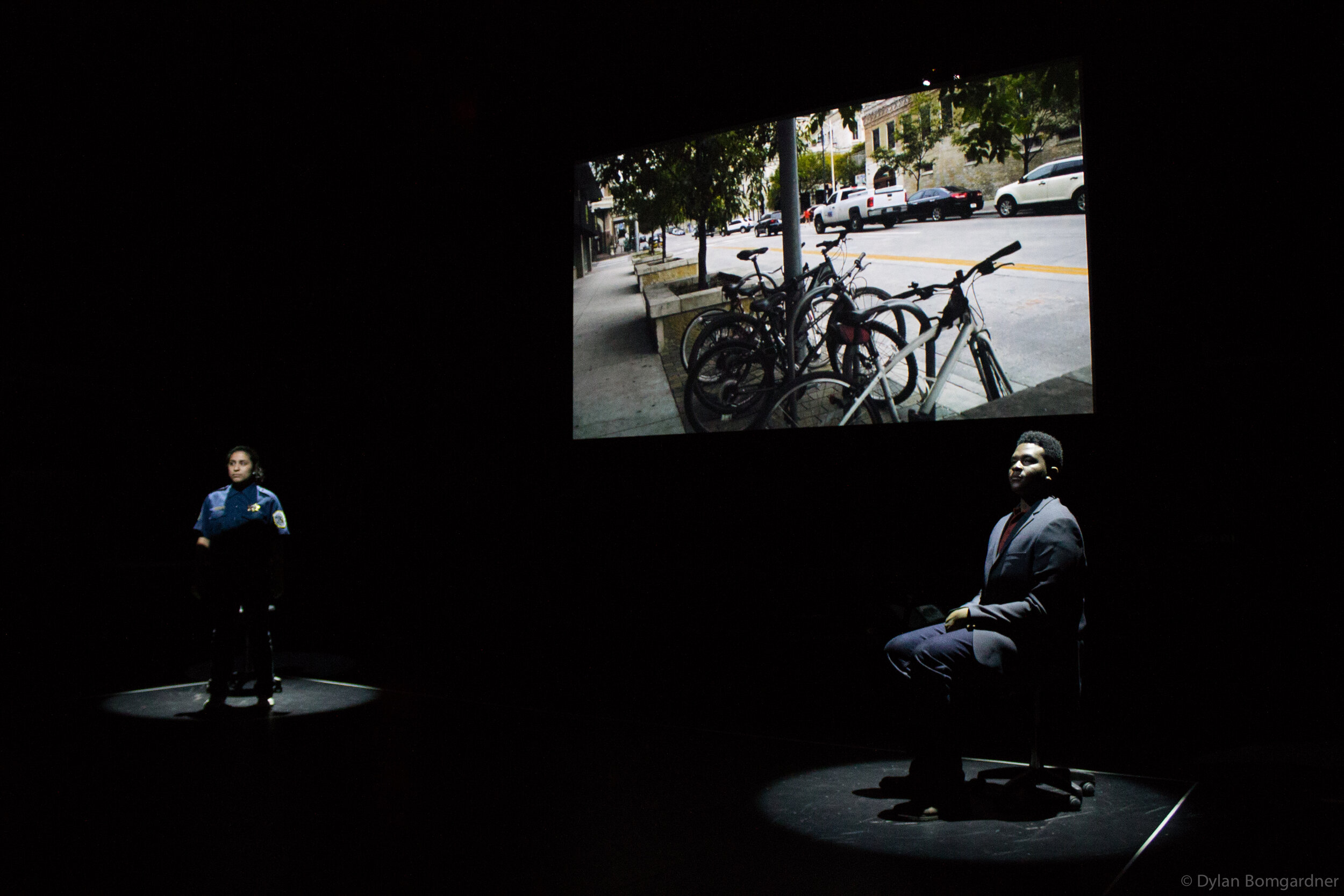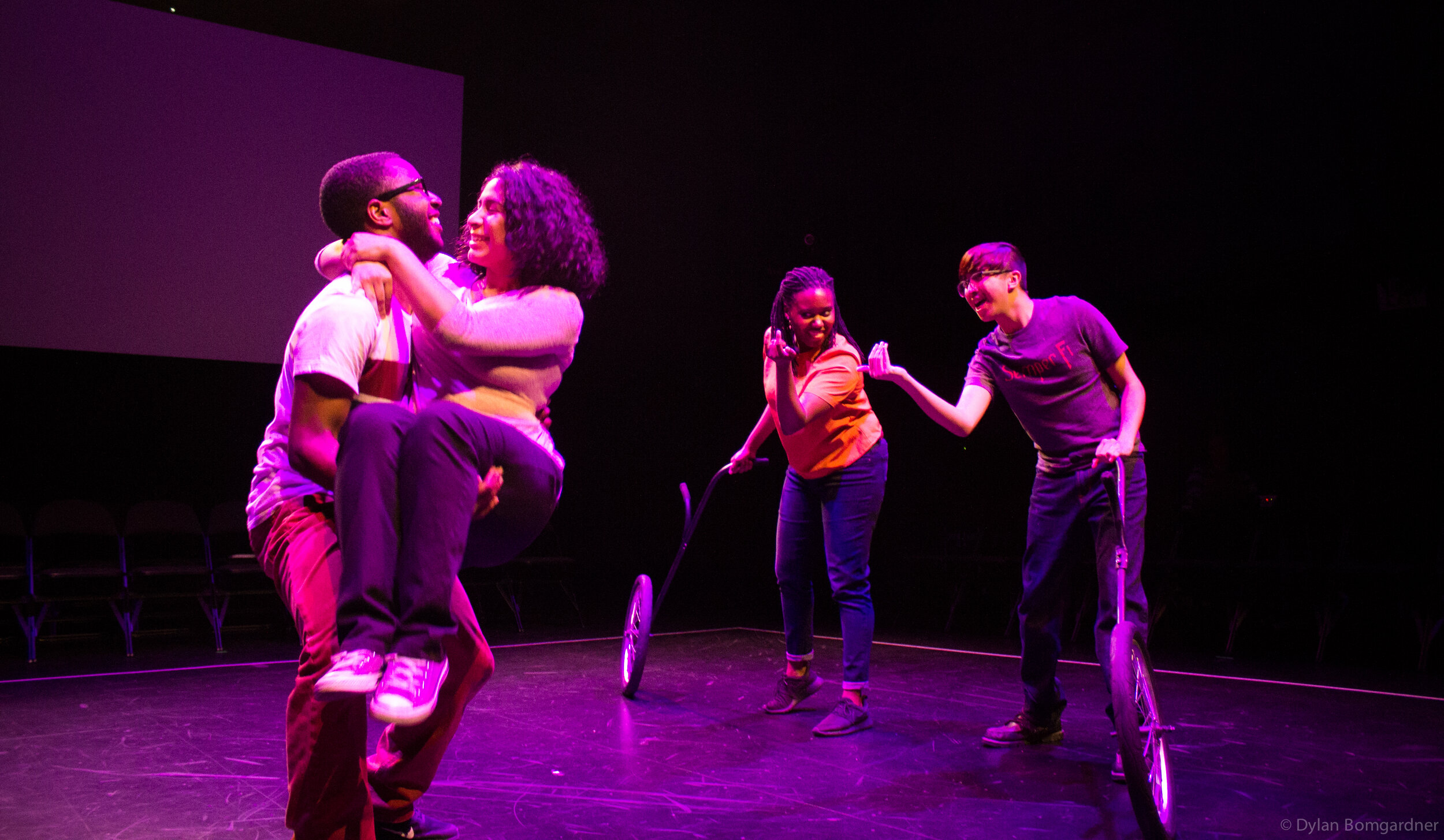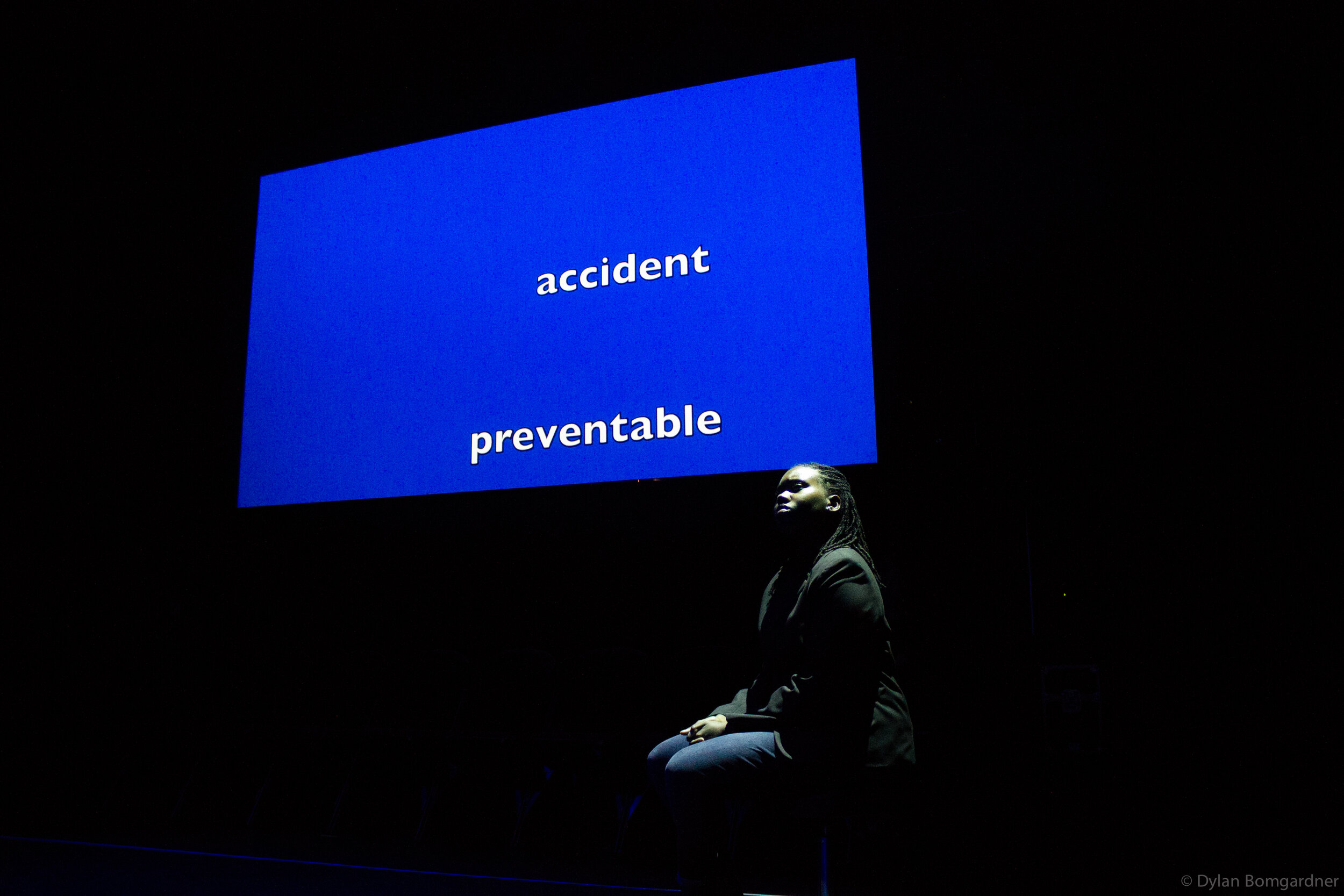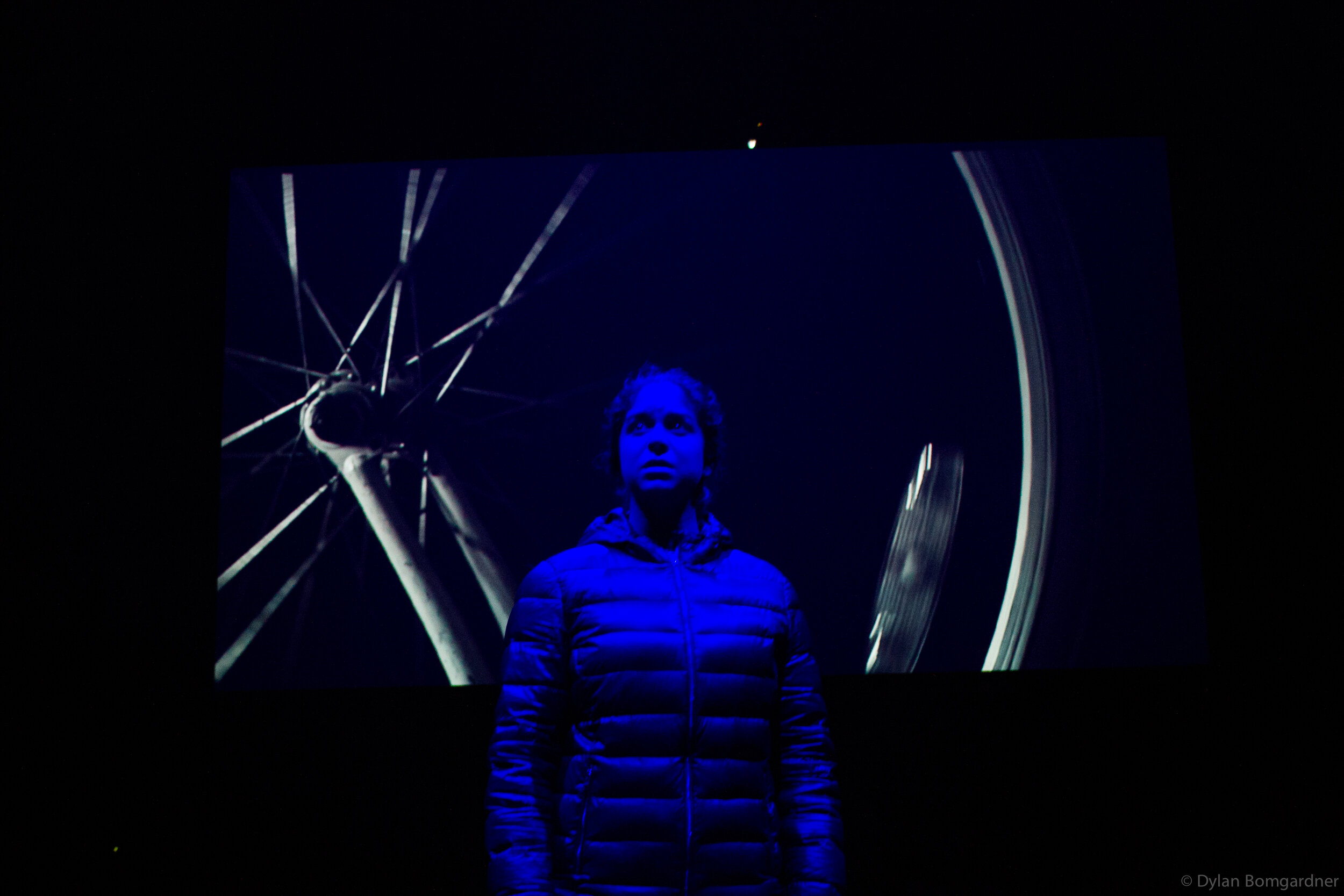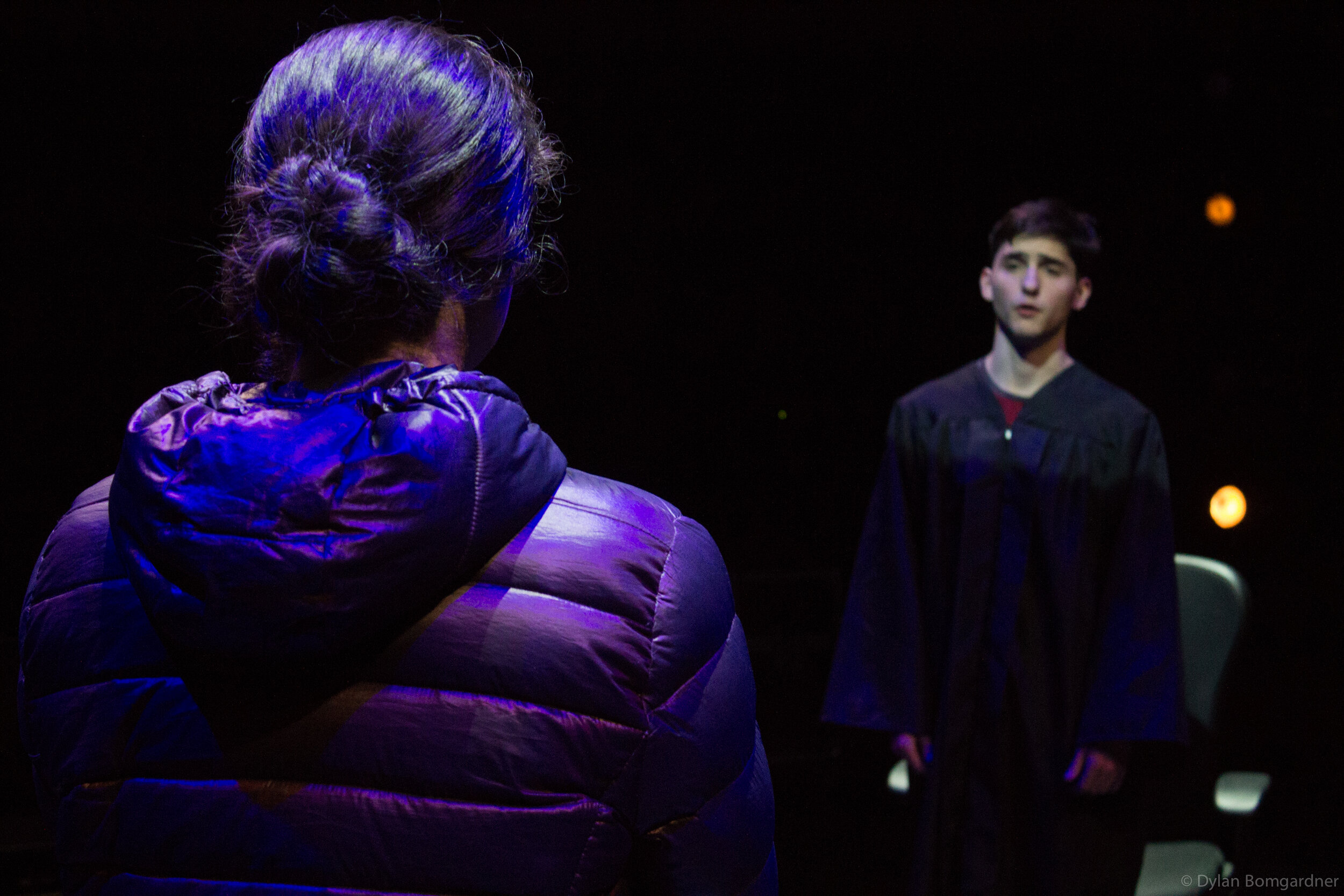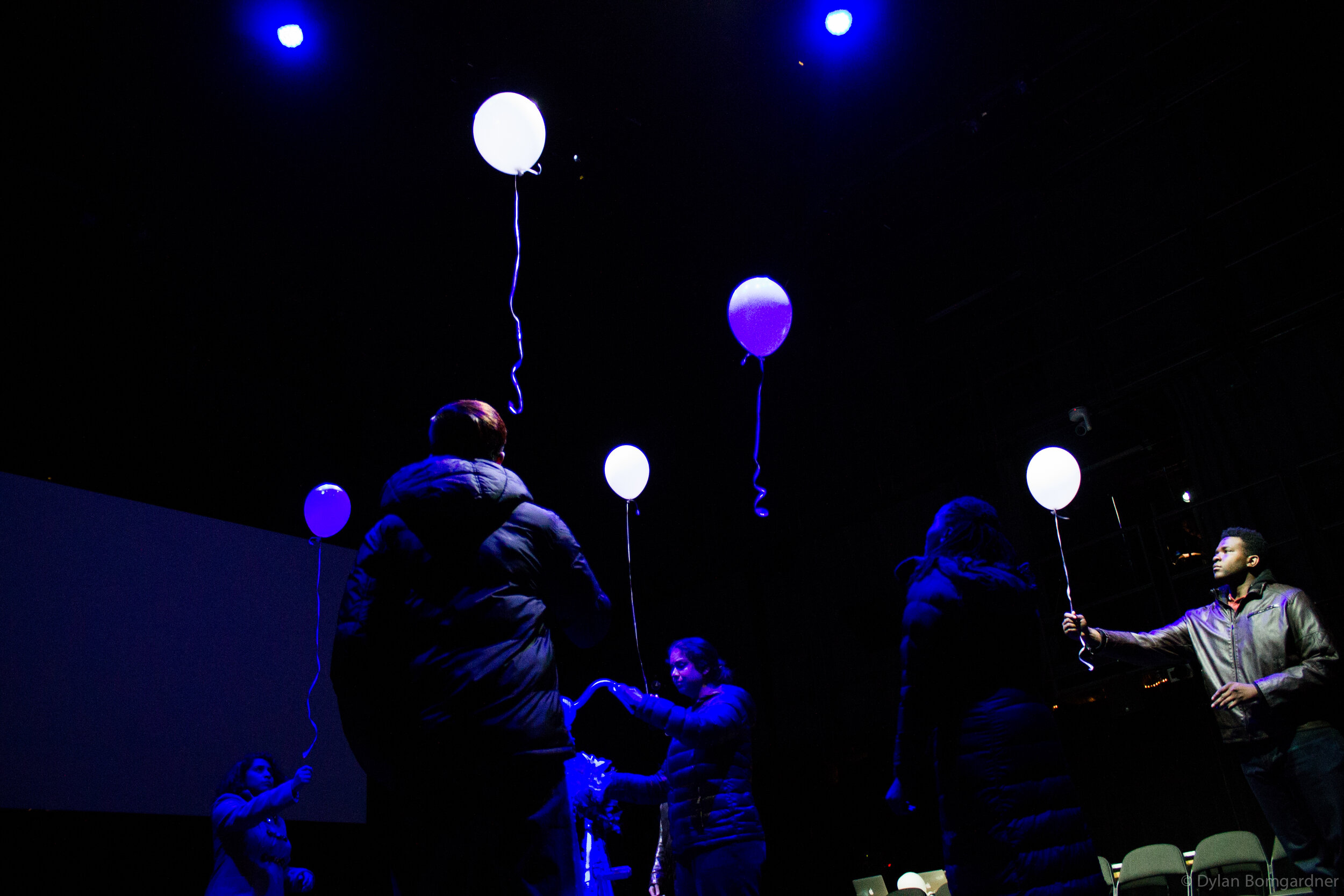The Right of Way
A docudrama investigating why bicyclists keep dying on U.S. city streets
Hector Avalos was killed by a drunk driver as he rode his bicycle home from work. This beloved son, fearless boyfriend, and devoted friend was taken in the blink of an eye. In the aftermath was a quest for justice. Featuring interviews with Hector's family and friends and court transcripts, this immersive multimedia production will look at the evolution of our city streets over the last century. Who has the right of way? And how do we stop hitting and killing pedestrians and bicyclists?
RECENT PRESENTATIONS:
Smithsonian National Museum of American History (Washington, D.C.)
American Planning Association National Conference (New Orleans, LA)
Indiana Bike/Walk Summit (Indianapolis, IN)
National Academy of Sciences (Washington, D.C.)
Moss Arts Center at Virginia Tech (Blacksburg, VA)
Forum Theatre (Silver Spring, MD)
Actors Theatre of Georgia (Marietta, GA)
FEATURED RESEARCH VOICES
There are several instances where raw audio from interviews conducted by the playwright is featured in the production. Those voices include:
Peter D. Norton, Ph.D., associate professor of history, University of Virginia
Ralph Buehler, Ph.D., associate professor of urban affairs, Virginia Tech
Tara Goddard, Ph.D., assistant professor of landscape architecture, Texas A&M
Becky Katz, chief bicycle officer for the city of Atlanta, Georgia
Thanh Dang, AICP, city planner for Harrisonburg, Virginia
Michael Stapor, MURP, land use planner for Loudoun County, Virginia
Jeremy Holmes, program director for RIDE Solutions (Roanoke, Virginia)
Peter Wilborn, founder of the Bike Law Network (Charleston, South Carolina)
Mackenzie Jarvis, AICP, transportation planner for Fairfax County, Virginia
Tara D. Reel, transportation planner for Virginia Beach, Virginia
“There is a concept called safety in numbers, and what this means is when we only have one person in the population biking, they are less safe overall on an individual level, because there are only a few. Cars are not used to seeing them on the roadway. As we get more and more people biking, cars become used to those kinds of interactions, so each individual person is safer.”
-Kari E. Watkins, Ph.D., associate professor of civil engineering, Georgia Tech
“Our roads are public space just like a public park is public space. But we have a very clear idea of who should and shouldn't be there. If you're not driving in the way in which the person behind you thinks you should be driving, there's this extreme way in which we dehumanize one another and have no empathy. And, you know, unfortunately we see how that extends nationally to politics and everything else.”
-Dan Piatkowski, Ph.D., assistant professor of planning, University of Nebraska
“If you're a driver in a car, which most of us are at any given time, you see somebody come zooming through traffic or cutting off another car, and you think, ‘God what an idiot.’ Individual driver is an idiot. But if you're in a car and somebody on a bike runs through a stop sign or filters through between a couple cars when perhaps they shouldn't, the thought is, ‘Those bicyclists are all such idiots.’ They lump everybody together into this group of bad actors.”
-Bruce Hagen, personal injury attorney, member of Bike Law (Decatur, Georgia)
WHAT ARE YOU GETTING?
A dedicated screening of our production (digital streaming or performed live) for your student body
A participatory, artist-led workshop (digital or live in-person), expanding the dialogue sparked by the play
An Immersive learning experience for your students during which they learn new ways to consume and create relevant content with enriched social awareness
TOPICS EXPLORED
History of road-based transportation in the United States and the effects of the built environment
Inattentional blindness
Vocabulary for traffic incidents and their effects on victimization
The role of the justice system in adjudicating traffic crashes
WANT TO TALK ABOUT IT?
Call executive director Thomas Murray at 773-349-2589 or click below to send him an email.


